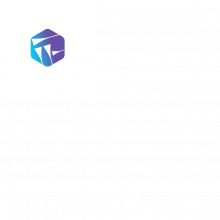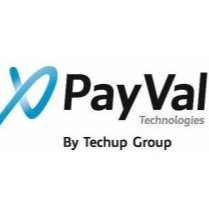Explore Top Angular Development Companies in Ahmedabad
That's a hell of a search to do now. Why not using the smart filters above? Last updated in: July, 2025
MultiQoS is essentially a software development company in this advanced age of technology, and directs its focus on innovative solutions.
Outsource Web Development India | PHP Development Company | AngularJS Developer | MEAN Stack | Full Stack | iPhone App | Android App | Educational ERP
Aadhyatech Solution builds scalable web, mobile, e-commerce, AI, and SAP solutions that help businesses grow with smart, custom tech development.
As a premier architectural 3D rendering firm, we specialize in transforming conceptual designs into visually stunning, photorealistic renderings.
we are full-stack IT company offering web & mobile app development, e-commerce solutions, digital marketing, and AI/ML services to empower businesses.
Services:
PrintXpand: We Build Web-to-Print Solutions That Work for You
Commitment towards the Quality!
Services:
Custom Web Development | AWS Development
Briskstar Technologies is a one-stop software company that accomplishes all sizes of custom Web and Mobile Development needs with AI-enabled tools.
We eQuest Solutions, are an India-based Software Company, specialized in PHP, PYTHON, SHOPIFY, WORDPRESS, LARAVEL, JAVASCRIPT, MOBILE APP DEV, etc.
IT Services India - #1 Mobile App Development Company in India & USA. We provide web and app design and development services across the world.
Services:
Leading Web Design & Development Company in India - NodePrix
Services:
We value substantial challenges, collaboration, and post-achievement triumph. Our teams are intelligent and nimble, and our ambitions are shared.
Leading Custom Software, Mobile App, Cloud, and AI Solutions Provider!
Services:
Glasier Inc. is a leading IT Services Provider Company in Ahmedabad, India.
Hybrid/Native Apps | Web Apps | Salesforce | Games
One of its kind mobile app development company and custom software development company in Ahmedabad.
Amin Softtech is a custom software development company revolutionising industries with innovative solutions. Empowering businesses through technology.
Trusted and Reliable Web Development & App Development Partner
Envision. Innovate. Transform.
Building Success Together.
Covrize is an IT outsourcing company that specializes in Digital Transformation and Software Product Engineering.
Payval Technologies delivers custom DevOps, cloud, and app solutions, empowering businesses with innovation, scalability, and operational excellence.
Filter Angular Development Companies in Cities near Ahmedabad
Dive deeper and find the company you need close to you or, from a specific city you prefer. Some of the best companies come from smaller places
Find more Angular Development companies around the world
TechBehemoths is the world's most advanced and user-friendly platform to match IT Companies with real clients without hustle.
The ICT Industry in Ahmedabad: General Overview
Ahmedabad continues to remain the main city of Gujarat state in India, even after the capital was moved to Gandhinagar. And beyond the fact that the city is a fast-growing tech hub, the main reason for staying in focus is its trade and commercial connections and development.
Additionally, the city has one of the most effective tech education systems, as the state invested in Ahmedabad’s science research more than in any other city in the region. Higher education quality is at good rates, which allows the city to benefit from an impressive number of young tech graduates each year, fueling IT companies with one of the world’s most precious resources - skilled workers.
However, one of the biggest challenges Ahmedabad faces is retaining human capital within the city limits, as there are more attractive places in India that provide a more favorable environment for IT workers and industry.
Salaries for IT professionals are midrange, not too big, and not extremely low: around $14K USD/year earns a Software developer and $21K USD/year an IT project manager. Compared to other cities and within the same industry, Ahmedabad IT companies offer decent compensation for IT professionals.
The number of IT companies in Ahmedabad was estimated at 5600+ in 2019, but it could be more. Many skilled developers and designers choose to provide freelance services instead of opting for a company, as the salaries are comparable but the work schedule is more flexible in the first case. Also, BPO companies in Ahmedabad offer competitive salaries, but with different opportunities for skilled IT professionals, and as a consequence attract ~25% of the IT human resources.
Even with these challenges, Ahmedabad remains one of India’s top IT destinations for companies, clients, and workforce, and is expected to grow in the next decade and surpass other IT centers from India and neighboring countries.
What is Angular and what are its benefits for your projects?
Angular (formerly AngularJS) is a popular open-source web application framework maintained by Google and a community of developers. It's used for building dynamic, single-page web applications (SPAs) and web-based applications in general. Angular provides a structured and organized way to create complex web applications by extending HTML with additional features and enabling the development of interactive, responsive, and maintainable front-end web interfaces. Here are some key aspects and concepts of Angular:
-
Component-Based Architecture
-
Templates
-
Directives
-
Dependency Injection
-
Services
-
Routing
-
Observable and RxJS
-
Modules
-
Testing
-
Cross-Platform
Angular's structured approach, strong tooling, and vibrant ecosystem of libraries and extensions make it a powerful framework for building modern web applications. It is particularly well-suited for large and complex projects where maintainability and scalability are crucial.
Companies may choose Angular over other front-end frameworks for their projects for a variety of reasons, depending on their specific needs and priorities.
-
Google Backing: Angular is developed and maintained by Google. This association often gives companies confidence in its long-term support, stability, and continuous improvement. Google's involvement is seen as a sign of reliability and commitment to the framework.
-
Mature and Established: Angular has been around for a while and has a strong track record of being used successfully in large-scale enterprise projects. It has a well-defined architecture and best practices, which can be beneficial for maintaining and scaling applications over time.
-
TypeScript Support: Angular is built with TypeScript, a statically-typed superset of JavaScript. TypeScript provides better tooling, code maintainability, and catches errors at compile time, which can reduce bugs and enhance code quality, making it attractive to companies that prioritize robust code.
-
Full-Featured Framework: Angular provides a comprehensive set of tools, libraries, and features out of the box, including routing, form handling, HTTP client, and more. This can save development time and effort compared to integrating multiple third-party libraries in other frameworks.
-
Two-Way Data Binding: Angular offers powerful two-way data binding, which allows for automatic synchronization between the data model and the view. This feature can make it easier to develop interactive and responsive user interfaces.
-
Large and Active Community: Angular has a large and active community of developers and a wealth of resources, including documentation, tutorials, and third-party libraries. This can be beneficial for finding solutions to common problems and getting support when needed.
-
Enterprise-Ready: Angular provides features like dependency injection, modularity through modules, and a strong emphasis on testability. These characteristics are well-suited for building robust and maintainable enterprise-level applications.
-
Strict Coding Standards: Angular enforces a set of coding standards and best practices, which can lead to more consistent and readable code. This can be important for companies with multiple developers working on the same codebase.
-
Cross-Platform Development: Angular can be used for building both web and mobile applications. Companies looking to develop applications for multiple platforms may choose Angular for its ability to share code between web and mobile apps using technologies like NativeScript or Ionic.
-
Integration with Backend Technologies: Angular can easily integrate with various backend technologies and APIs. This makes it suitable for projects where the front end needs to communicate with different types of server-side applications.
-
Security Features: Angular provides built-in security mechanisms to help prevent common web vulnerabilities like Cross-Site Scripting (XSS) and Cross-Site Request Forgery (CSRF). This can be crucial for projects with high security requirements.
-
Ecosystem and Tooling: Angular has a rich ecosystem of tools, extensions, and IDE support, including Angular CLI for project setup and management. This can streamline development workflows and improve productivity.
Ultimately, the choice of Angular or any other framework depends on the specific project requirements, the development team's expertise, and the company's long-term goals. Companies evaluate various factors to determine which framework aligns best with their needs, resources, and priorities.























